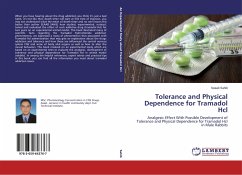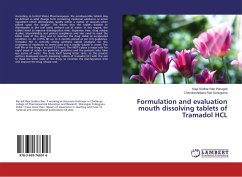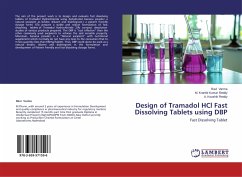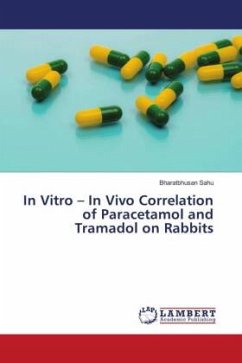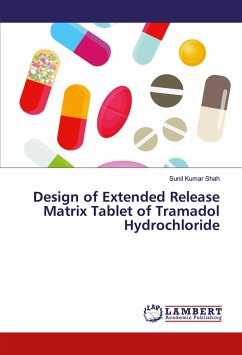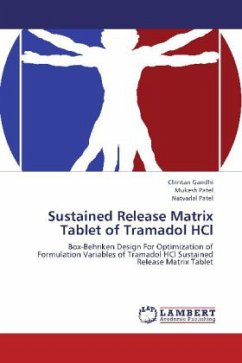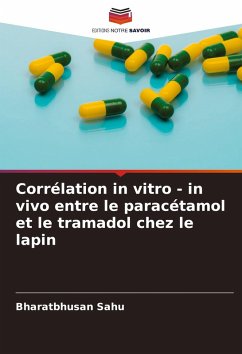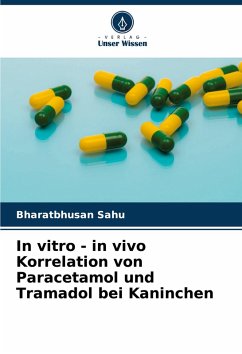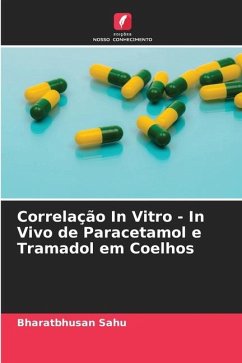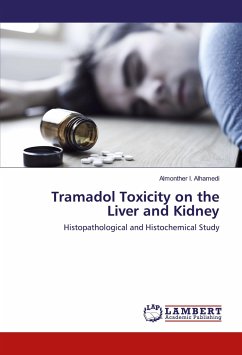
Tramadol Toxicity on the Liver and Kidney
Histopathological and Histochemical Study
Versandkostenfrei!
Versandfertig in 6-10 Tagen
33,99 €
inkl. MwSt.

PAYBACK Punkte
17 °P sammeln!
In the last couple of years, the treatment of chronic pain has undergone an earth-shaking transformation as opioid addiction continues to claim - and ruin - lives. The chances of long-term opioid use, use that lasts one year or more, start increasing with each additional day supplied. Tramadol is a narcotic-like painkiller that has been touted as not being addictive. Patients can, however, become dependent on tramadol. This study was designed to follow up the histopathological and histochemical response which might be induced in the liver and kidney of rabbits as a consequence of tramadol appl...
In the last couple of years, the treatment of chronic pain has undergone an earth-shaking transformation as opioid addiction continues to claim - and ruin - lives. The chances of long-term opioid use, use that lasts one year or more, start increasing with each additional day supplied. Tramadol is a narcotic-like painkiller that has been touted as not being addictive. Patients can, however, become dependent on tramadol. This study was designed to follow up the histopathological and histochemical response which might be induced in the liver and kidney of rabbits as a consequence of tramadol application. The study indicated that tramadol had hepatotoxic and nephrotoxic effect on rabbit's liver and kidney that must be considered during its use as a pain-killer agent. The finding in this book can be extrapolated to human beings to assess the potential hazards in the human populations due to tramadol addiction.



